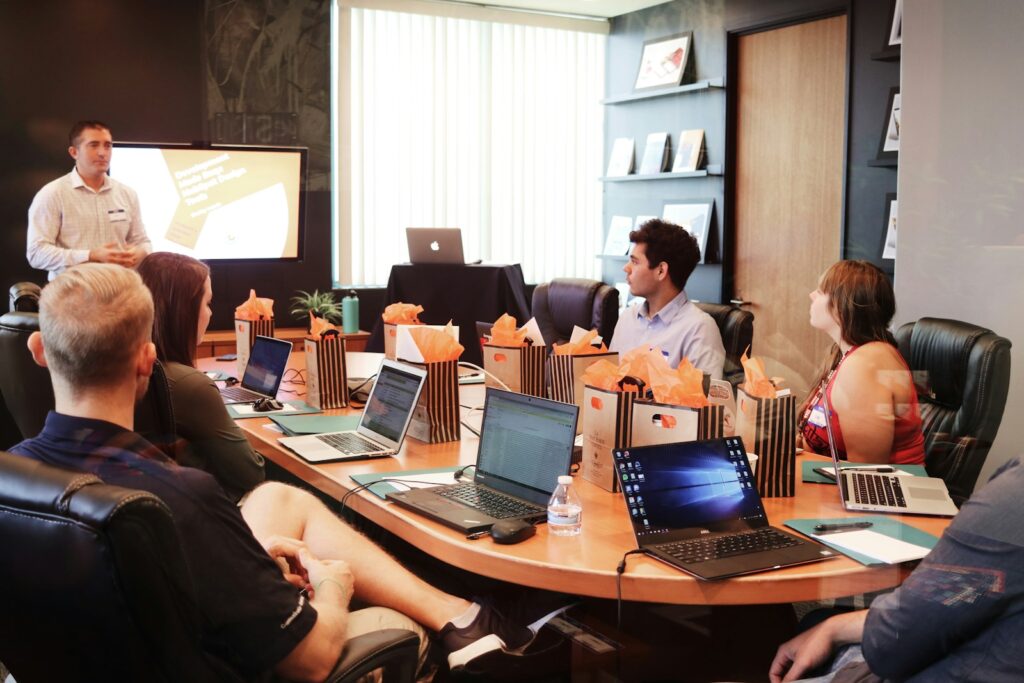
Your resume shows your qualifications on paper, but the cover letter brings them to life. It’s your first opportunity to express personality, motivation, and alignment with the job. Unlike a bullet-point list, a cover letter connects your experiences to a specific position and acts as your advocate—introducing you to a hiring manager before you ever meet.
But there’s no one-size-fits-all. Different industries demand different tones, structures, and emphasis. A marketing role might welcome creativity, while consulting demands formality. Understanding these expectations is essential.

Why This Moment Matters: A Job Market Full of Opportunity
According to government data from November, there are currently more than 10 million job openings across the United States—a historic level that signals significant opportunity for job seekers. Whether you’re aiming to re-enter the workforce, pivot to a new industry, or advance your career, this is a rare window of possibility.
But with such opportunity comes intense competition. Openings may be plentiful, but so are applicants, many of whom bring strong resumes, advanced degrees, or years of experience. In such a crowded field, simply being qualified isn’t enough. Your application must be strategically crafted to stand out.
This means going beyond listing credentials. Employers are looking for clarity, intent, and alignment—candidates who not only meet the job requirements but show they understand the role, the industry, and how they can deliver value from day one. With the job market shifting rapidly and employers seeking agility, relevance has become the new standard of competitiveness.
In short, now is the time to act—but only if you’re prepared to do it right.
Learning from Mistakes: What State-Level Job Applications Reveal
Recent public records from Florida’s state government offer rare insight into how applicants succeed—or fail—when applying for high-level jobs. Reviewing applications for prominent positions like the Director of Revenue or Insurance Regulation Commissioner revealed how often candidates apply without matching basic qualifications.
For example, despite the Revenue Director job requiring deep financial and management expertise, many applicants lacked relevant experience entirely. Some, like restaurant workers or college students, applied despite zero connection to the job’s core duties.

Inside the Applicant Pool: A Study in Contrasts
Among 110 applicants for the Director of Revenue position, a few stood out:
- Richard Swarttz, a CPA and former CFO of the state Republican Party, showed the financial acumen the role requires.
- Steven Petty, a former Chief Economist at Florida TaxWatch, had an ideal background in pensions and economic planning.
- Winston Charles, Finance Director at a hospital, brought relevant accounting expertise and an MBA in progress.
But many others didn’t fit the bill:
- Velana Davis, a nursing student working part-time at a fast-food chain, asked for $10 in salary.
- Matthew Pridgen, a children’s counselor, listed “heavy machine driving” as a skill.
- Mary Therese Sheehy submitted recommendation letters meant for a completely different nonprofit job.
Common mistakes included applying with unrelated experience, submitting generic or recycled documents, and failing to tailor applications to the position.
Key Takeaway: Tailoring Matters—A Lot
The Florida state job applications reveal a hard truth: even for high-level government roles, many applicants submit materials that fail to demonstrate any clear fit. From nursing students and part-time restaurant workers to well-meaning professionals in unrelated fields, a significant portion of candidates showed little understanding of what the job actually required. Some reused cover letters meant for entirely different positions, while others listed irrelevant skills like heavy machinery operation or simply left key sections blank.
This isn’t just about inexperience—some applicants had impressive credentials in other sectors but still failed to align their strengths with the demands of the role. On the other hand, a few individuals stood out by showcasing precise experience in finance, leadership, or policy—matching the position’s core needs exactly.
The lesson is clear: an application must not only reflect competence, but relevance. It must demonstrate that the applicant understands the specific expectations of the role and can meet them. A generic resume or cover letter, no matter how polished, is not enough. In a competitive market, the ability to clearly and convincingly connect your background to the job at hand is what sets successful candidates apart.

How Industry Expectations Shape Your Application Strategy
Job applications must be tailored not just to a job description but to the industry culture and norms.
Technology Roles
According to Thomas Vick from Robert Half, tech cover letters should show how you applied your skills to solve problems. Rather than just listing programming languages, explain outcomes and metrics. Highlight agility in adapting to new tools or systems.
Legal Jobs
Billie Moliere, also from Robert Half, emphasizes concise, well-written letters for legal positions. They should clearly connect your legal training and experience to the firm’s focus. Mentioning law schools or referrals can add value.
Consulting Positions
Heather Kristan of Altman Solon advises candidates to focus on interpersonal traits like leadership, curiosity, and cultural fit. Show specific interest in the firm by referencing recent publications or team members. Vague or recycled letters stand out—for the wrong reasons.

Academic and Law School Applications: Different but Similar Lessons
Though aimed at students, lessons from law school applications reinforce the importance of being personal, precise, and authentic:
- Personal Statements should be concise, meaningful, and focused on unique life experiences.
- Letters of Recommendation should come from people who truly know you—not just those with prestigious titles.
- Avoid gimmicks like poems or recycled essays. Focus on clarity, sincerity, and alignment with the program.

The Apple Example: Standing Out in a Hyper-Competitive Market
Apple is a case study in how competitive hiring can be. To get hired, candidates must:
- Tailor resumes with role-specific keywords.
- Showcase relevant projects, especially in coding portfolios.
- Demonstrate alignment with Apple’s values like innovation, collaboration, and diversity.
- Prepare rigorously for behavior-based and technical interviews.
Referrals, event networking, and polished LinkedIn profiles increase the odds of landing an interview. Even small details—like using a scannable resume format—matter greatly in tech hiring pipelines.

From public sector surprises to corporate hiring standards, one lesson remains consistent and undeniable: a successful application is never generic. It must be sharply tailored to the specific job, written with clarity and intent, and directly relevant to the responsibilities and expectations of the role.
This applies whether you’re applying to run a state revenue department, join a fast-moving tech firm, or gain admission to a competitive academic program. What separates top candidates isn’t just experience or education—it’s how well they understand the role, how clearly they communicate that understanding, and how convincingly they connect their skills to the job’s demands.
In today’s saturated job market, where dozens or even hundreds of people may be vying for the same opportunity, relevance, precision, and preparation are your edge. That means reading job descriptions closely, researching the organization’s culture and priorities, and presenting your qualifications through the lens of what the employer actually needs.
It’s not about having the longest resume or the most degrees. It’s about showing that you are the right fit—for this job, at this time, in this environment. The candidates who succeed are those who do the work before they hit “submit.”





